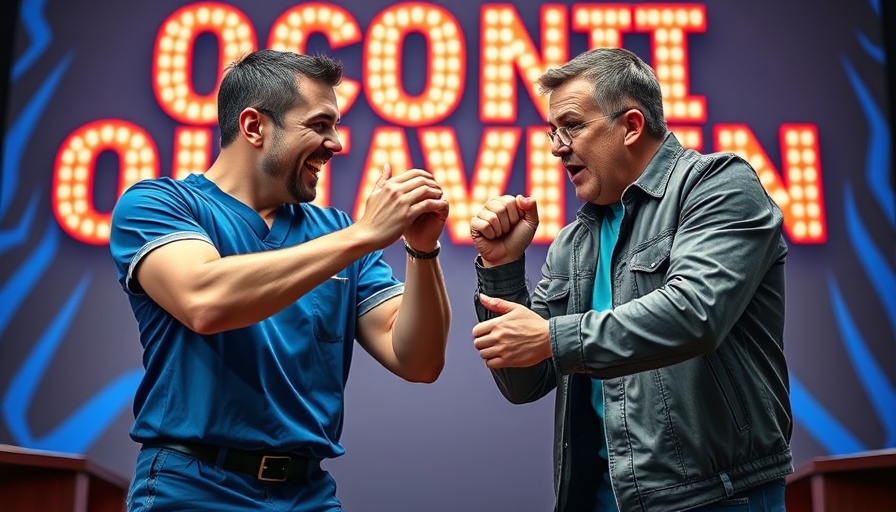
The Great Debate: Emergency Medicine vs. Family Medicine
In a lively discussion between Dr. Mike Varshavski, a family medicine physician, and Dr. Donald Pettet, an emergency medicine physician, both doctors engage in the age-old debate: which specialty is harder? The video titled Emergency vs. Family Medicine: Which Is Harder? offers a humorous yet insightful look into the professionals' perspectives and daily challenges, shedding light on the skills required in both fields.
In Emergency vs. Family Medicine: Which Is Harder?, the discussion dives into the unique challenges of both medical specialties, exploring key insights that sparked deeper analysis on our end.
The Nature of Emergency Medicine
Emergency medicine (EM) emphasizes quick decision-making. Dr. Pettet pointed out that emergencies require swift responses, often leaving little time for deliberation. This immediacy can be incredibly stressful but rewarding, as emergency physicians often deal with life-or-death situations. In contrast, family medicine (FM) provides the luxury of time to explore patient histories and implement gradual treatment plans, as highlighted by Dr. Varshavski.
Patient Volume and Care Dynamics
When discussing patient volume, the doctors noted the differences in their schedules. Emergency physicians like Dr. Pettet often encounter a high turnover of patients, whereas family medicine tends to involve longer consultations, emphasizing relationship-building with patients. Dr. Varshavski explained that while he sees a maximum of four patients in an hour during standard appointments, he still has to juggle urgent cases that arise unexpectedly. This highlights the layered complexity of patient care across specialties.
Skills Beyond Medical Training
An interesting revelation was how neither doctor felt adequately prepared for some of the emotional and procedural challenges of their roles. Dr. Varshavski mentioned how there were skills he never learned in school, like the emotional toll that arises when a patient feels neglected. Dr. Pettet echoed this sentiment, explaining that the intensity of emergency situations often leads to experiences that can't be replicated in a classroom.
The Emotional Rewards of Medicine
Both physicians agreed on one thing: the most rewarding part of their jobs is saving lives, albeit in different manners. Dr. Pettet takes pride in his immediate impact on patients in crisis. In contrast, Dr. Varshavski finds fulfillment in managing chronic conditions over time, effectively prolonging life and enhancing patients' quality of living. The differences in their practices reflect the diversity in healthcare roles and specialties.
What’s Next for the Healthcare Debate?
As the conversation transitioned towards potential advancements in healthcare, both doctors humorously touched on how artificial intelligence could streamline their work. While Dr. Varshavski mentioned incorporating AI in preventive measures, Dr. Pettet focused on reducing charting work to allow more quality time with patients. This highlights the ongoing evolution of medicine and the pursuit of better practices to enhance the patient experience.
In Emergency vs. Family Medicine: Which Is Harder?, the lively banter between two practitioners ultimately illustrates that no matter the specialty, healthcare professionals face unique challenges and triumphs. Their shared commitment to patient care underscores the importance of both emergency and family medicine in our healthcare system.
As advancements in technology and techniques continue, this debate invites us to consider how these two corners of healthcare will evolve and intersect in the future.
 Add Row
Add Row  Add
Add 




 Add Row
Add Row  Add
Add 

Write A Comment